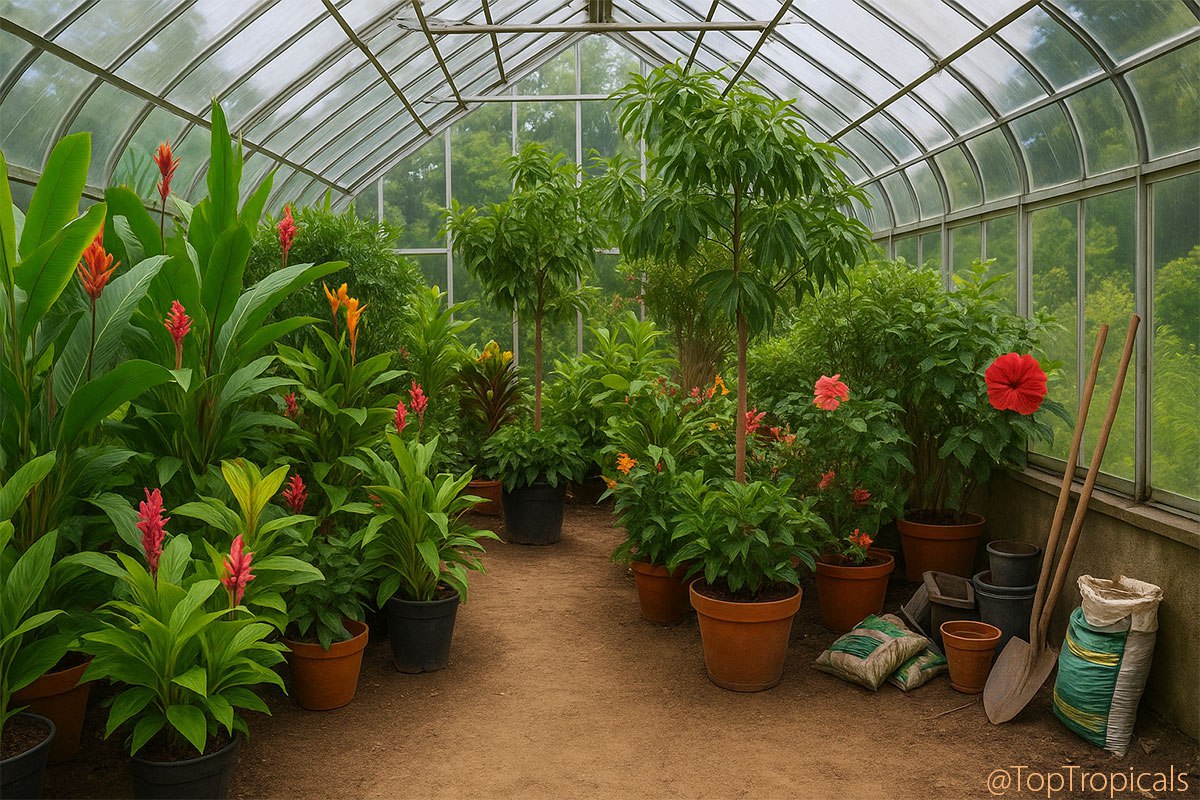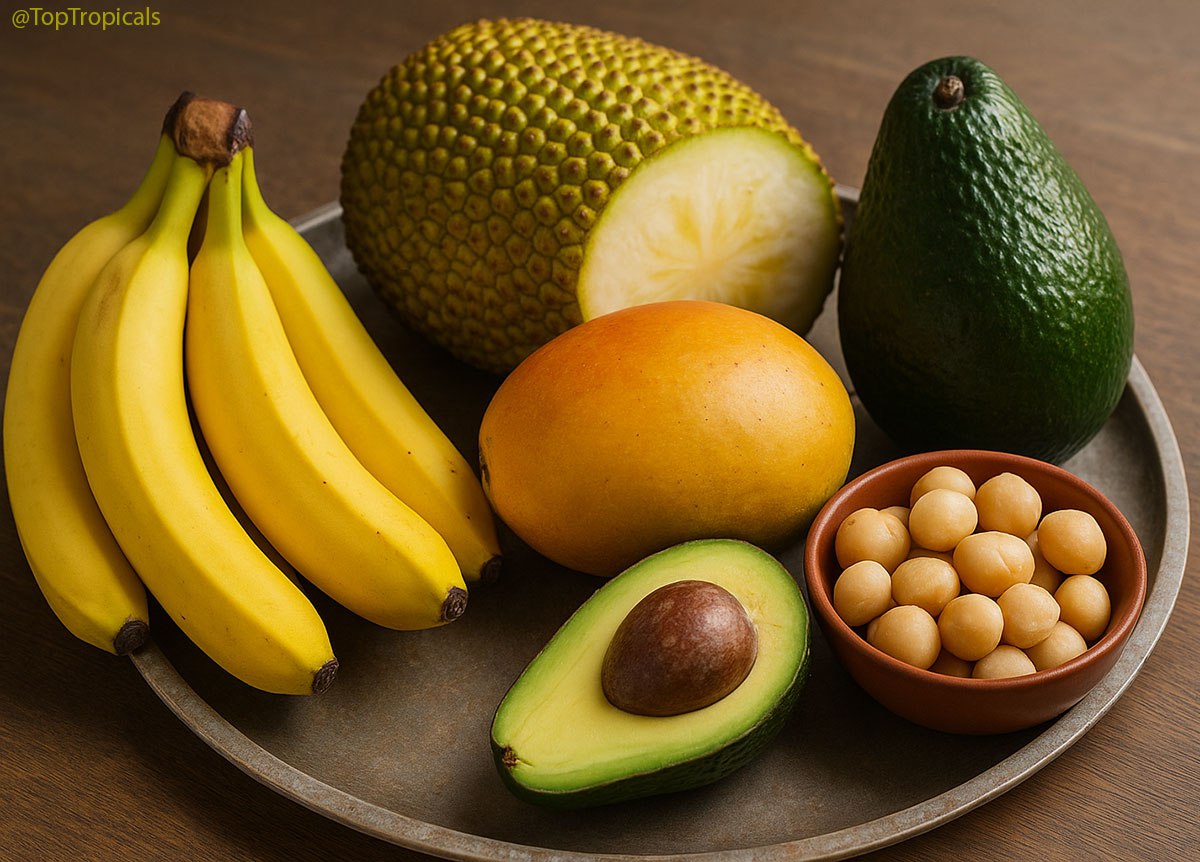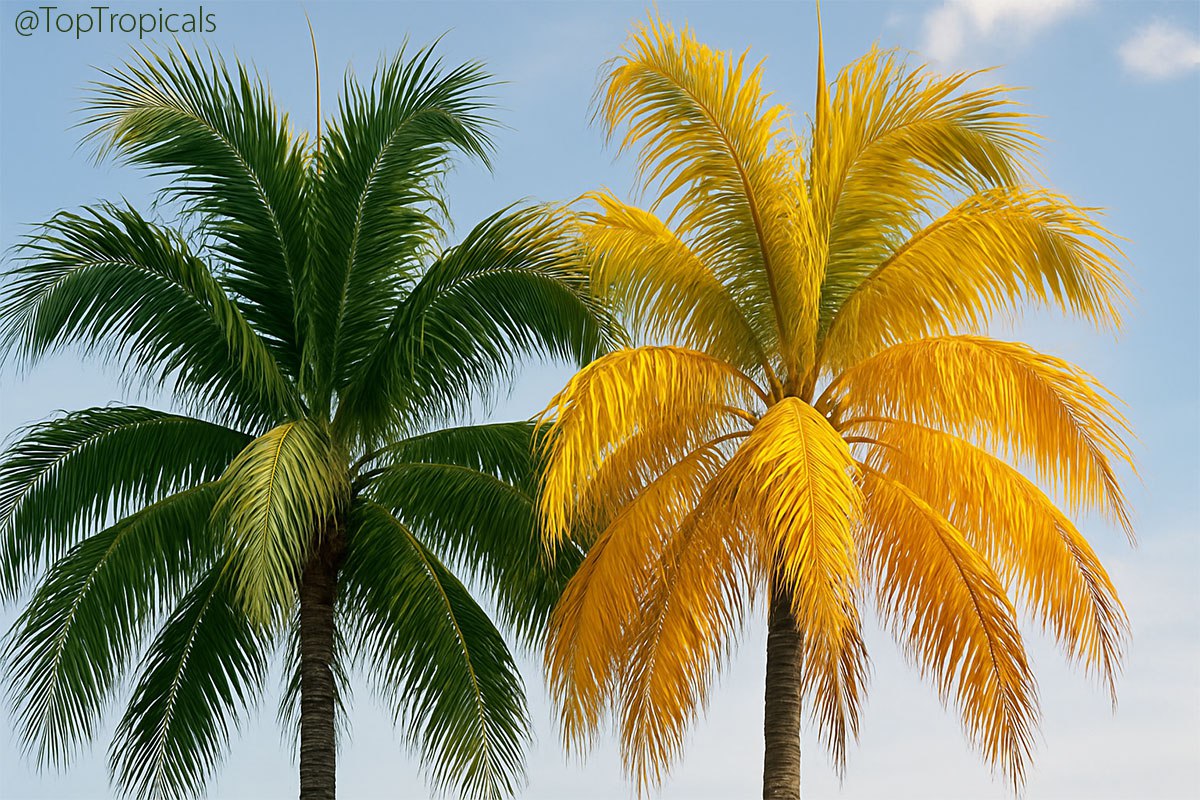🌴
Why is my palm tree turning yellow?
Yellowing leaves are a common concern with palms and can be a sign of several issues, most commonly: nutrient deficiency and pests or disease. Additionally, leaf yellowing may be a sign off overwatering or poor drainage, underwatering, or cold damage.
-
- ✔️Nutrient deficiency
Nutrient deficiency is the most frequent cause of palm issues. Palms are heavy feeders, and even a slight imbalance can lead to yellowing. Lack of nitrogen, magnesium, iron, or potassium is the leading cause.
-
- ✔️Signs of nutrient deficiencies:
▫️
Magnesium and Iron deficiency is one of the top culprits, especially in sandy soils. It causes older fronds to turn yellow with green veins.
- ▫️Potassium deficiency causes yellow or orange spots on older fronds.
- ▫️Nitrogen deficiency leads to overall pale yellowing, especially in new growth.
- ✔️How to fix?
Use a slow-release fertilizer with high Nitrogen content, like Green Magic, that includes all these elements; with 16-6-11 grade and 6 months release, it turns plants green very quickly! You can also use a balanced liquid fertilizer like Sunshine Robusta. Additionally, a supplement of magnesium sulfate (Epsom salt) and micro-element supplement containing chelated Iron can help, like Sunshine Superfood (amino-acid based natural product).
-
- ✔️Pests and Diseases
Pests and fungal diseases can lead to yellowing. Check for signs of scale, mites, or fungal and bacterial problems, especially if yellowing is uneven or spotted.
-
- ✔️Signs of pests:
▫️Thrips cause silvery-yellow streaks or mottling
- ▫️Spider mites, especially in dry conditions, cause yellow speckling
- ▫️Scale insects can suck sap and weaken fronds
- ▫️Mealybugs often found in leaf bases and crowns
- ✔️How to fix?
Inspect your palm regularly and treat pests early with neem oil, insecticidal soap, or horticultural oil.
-
- ✔️Lethal yellowing
Lethal yellowing is a serious disease caused by a phytoplasma, a type of bacteria-like organism. It affecting mostly Coconut palms and some other species like Phoenix (Date) palms. It causes premature fruit drop, yellowing of fronds starting from the lower ones, and eventual death of the tree.
-
- ✔️How to fix?
Unfortunately, there's no cure, but early removal of infected trees can slow the spread. Disease-resistant coconut varieties are available.
-
- ✔️Other causes
▫️
Overwatering or Poor Drainage: Too much water can suffocate roots and lead to yellowing. Make sure the soil drains well and let it dry slightly between waterings.
- ▫️Underwatering: Dry soil for too long will stress the palm. Water deeply but infrequently.
- ▫️Cold Damage: Exposure to cold temperatures can turn fronds yellow or brown, especially in tropical varieties.
✔️In most cases, leaf yellowing isn't fatal, but it's a sign your palm needs attention. Focus on balanced feeding, proper watering, and pest checks to keep your palm healthy and green. Trim only fully dead fronds - yellow ones still provide nutrients to the palm. With proper care, your palm should green up again.
🛒
Shop garden supplies
#How_to #Fertilizers
🟢 Join 👉 TopTropicals

